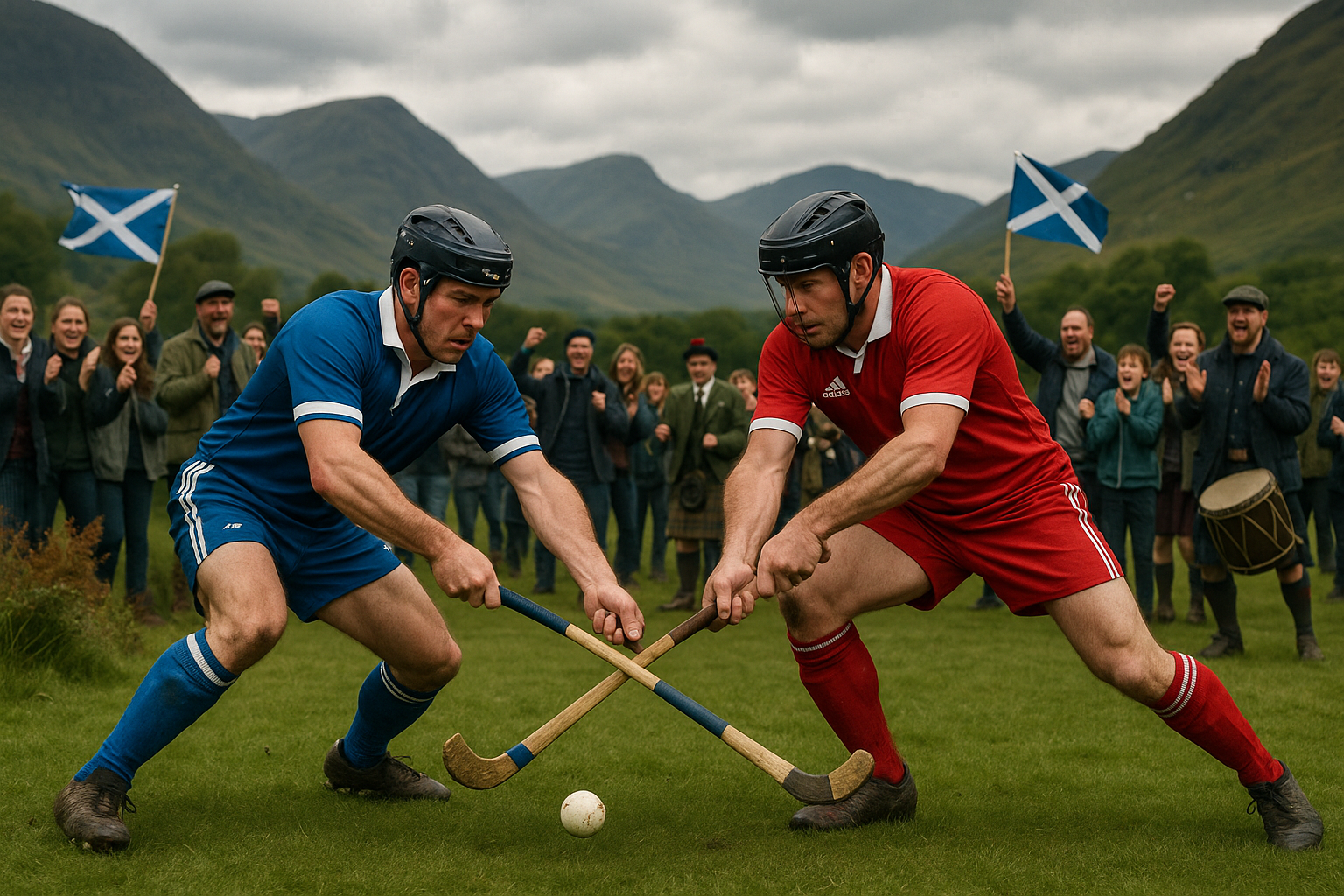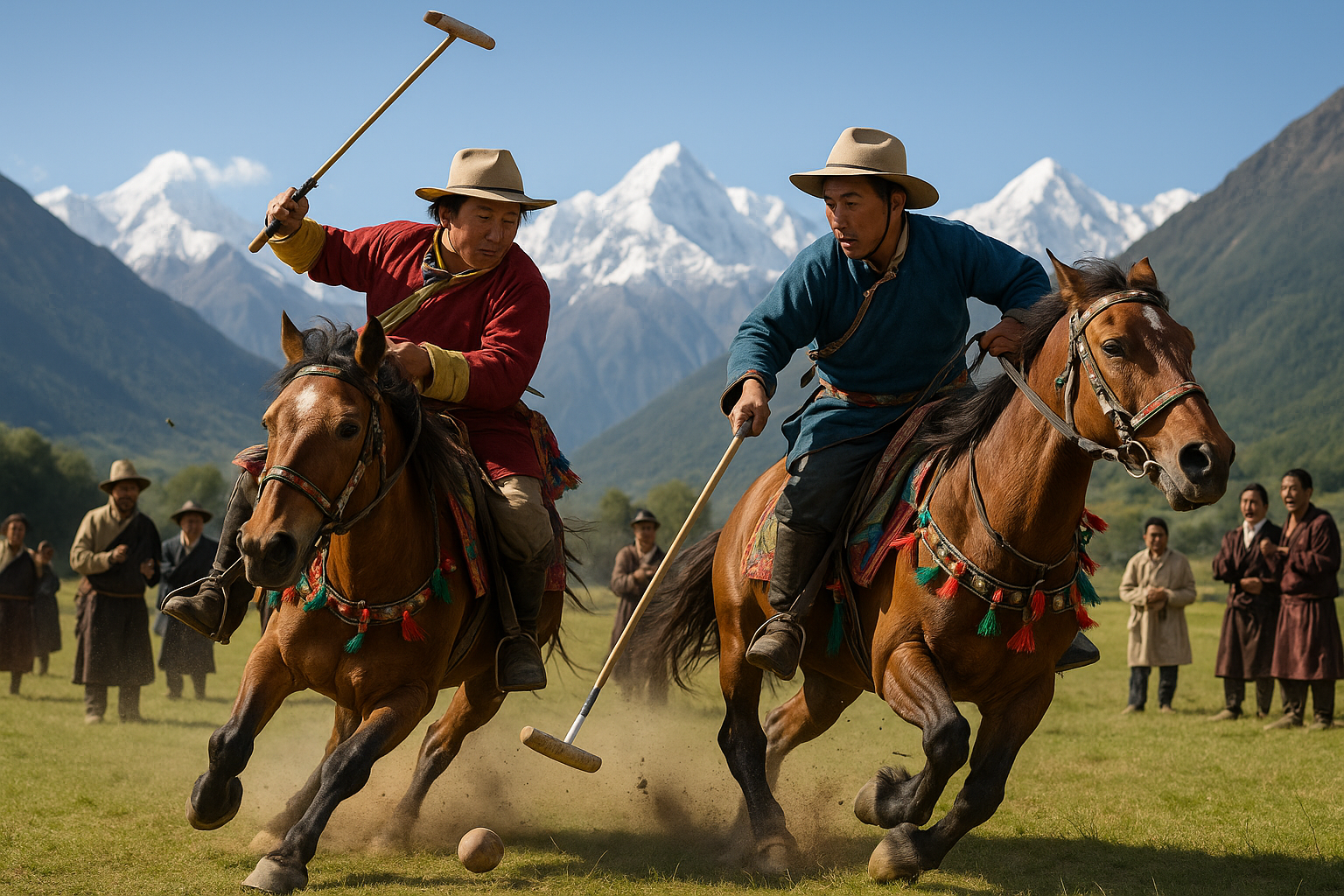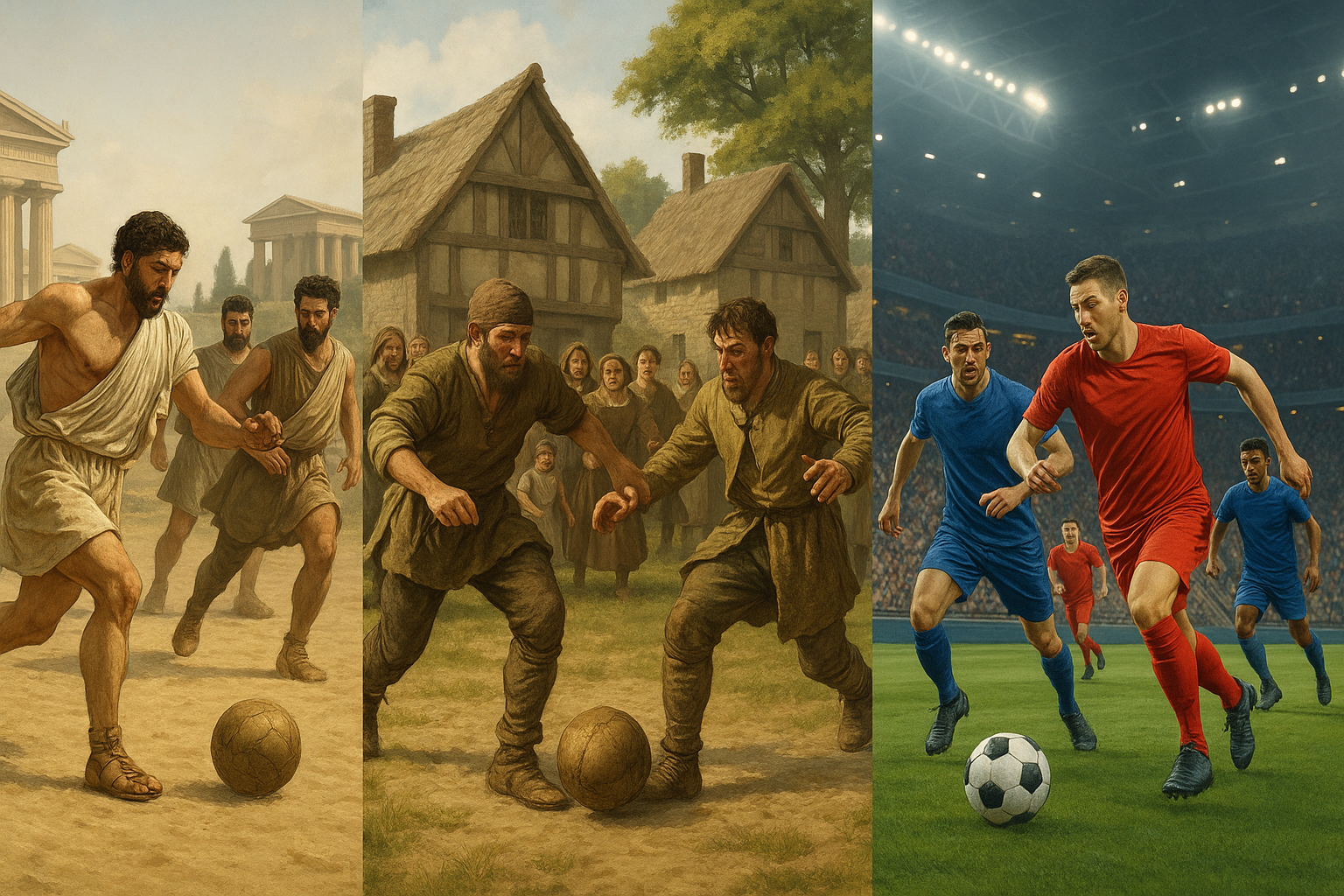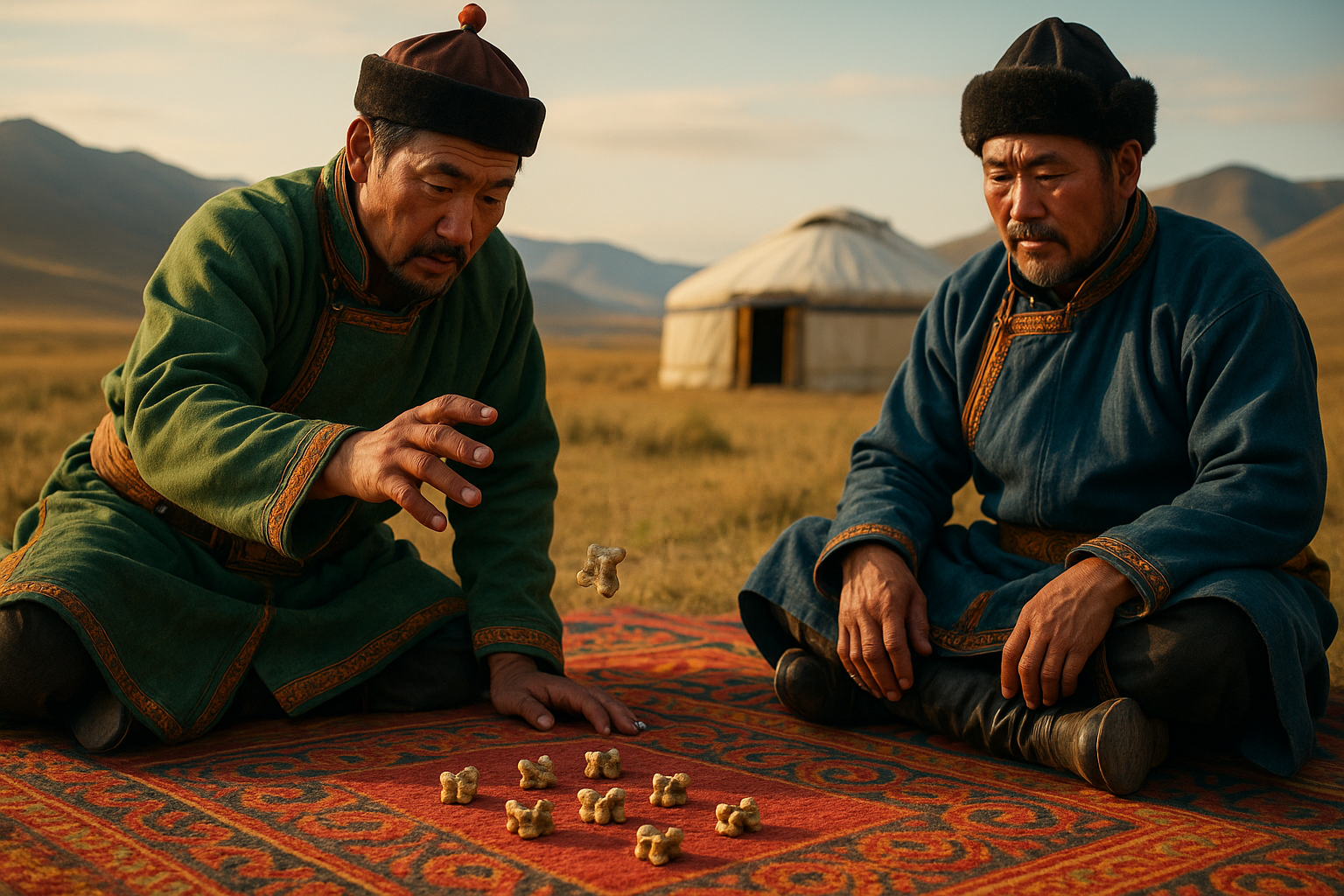In the heart of ancient Greece, amidst towering columns and the hum of bustling agora, an exhilarating spectacle captivated the hearts and minds of its people. It was not the epic tales of Homer, nor the profound philosophies of Plato and Aristotle that drew them into fervent anticipation. Instead, it was a game—simple in its concept yet rich in tradition and culture—that played a pivotal role in shaping the social fabric of Hellenic society: the ancient Greek ball game. 🏺⚽
Long before the world became enamored with the likes of soccer, basketball, or rugby, the ancient Greeks were engaging in ball games that were as much about community and prestige as they were about athletic prowess. These games, woven into the very tapestry of Greek life, were not mere pastimes but rather intricate expressions of identity, power, and social dynamics. To delve into the world of these ancient sports is to uncover a narrative that speaks volumes about Greek society, their values, and their enduring legacy.
But what exactly were these ball games, and why did they hold such sway over the ancient Greeks? In a civilization renowned for its intellectual achievements and artistic endeavors, how did a seemingly simple sport command such respect and admiration? As we explore this fascinating topic, we will journey through the nuances of Hellenic culture, examining how these games transcended the boundaries of mere recreation and became emblematic of power and prestige.
The Origins of the Ancient Greek Ball Game
To understand the significance of the ball game in ancient Greece, we must first trace its origins. The roots of these games are deeply embedded in the cultural and religious practices of the time. Ball games were often linked to ceremonial events and religious festivals, serving as a bridge between the divine and the mortal. As we delve deeper, we will uncover how these games were more than just physical contests; they were spiritual experiences that united the community in celebration and reverence.
The Social and Political Implications
Beyond the thrill of the game itself, ball games held profound social and political implications. Participation in these games was not just a matter of personal glory but a demonstration of civic duty and allegiance. The athletes who excelled in these competitions were celebrated as heroes, their victories reflecting the honor and superiority of their city-states. As we analyze the societal impact, we will see how the ball game was a microcosm of the political landscape, a stage where alliances were forged and rivalries played out.
The Evolution of the Game
As with any cultural phenomenon, the ancient Greek ball game evolved over time, adapting to the shifting dynamics of society. From the early rudimentary forms to more organized and competitive events, the game’s evolution mirrors the development of Greek civilization itself. This journey through time will reveal how the game adapted to the changing tides of politics, warfare, and cultural exchange, maintaining its relevance and allure across generations.
Modern Echoes of Ancient Traditions
While the specific rules and formats of the ancient Greek ball games may have faded into obscurity, their influence is undeniably felt in modern sports. The ideals of sportsmanship, teamwork, and excellence championed by the Greeks continue to resonate today. As we conclude our exploration, we will reflect on how these ancient traditions have shaped contemporary sporting culture, leaving an indelible mark on the games we love and cherish.
In this comprehensive exploration, we aim to shed light on the power and prestige of the ball game in ancient Greece, offering a window into a world where sport was more than just a game—it was a testament to the enduring spirit of a civilization. So, as we unravel the threads of this intriguing narrative, prepare to be transported to a time where the echoes of cheering crowds and the triumphs of legendary athletes continue to inspire and captivate. 🌟
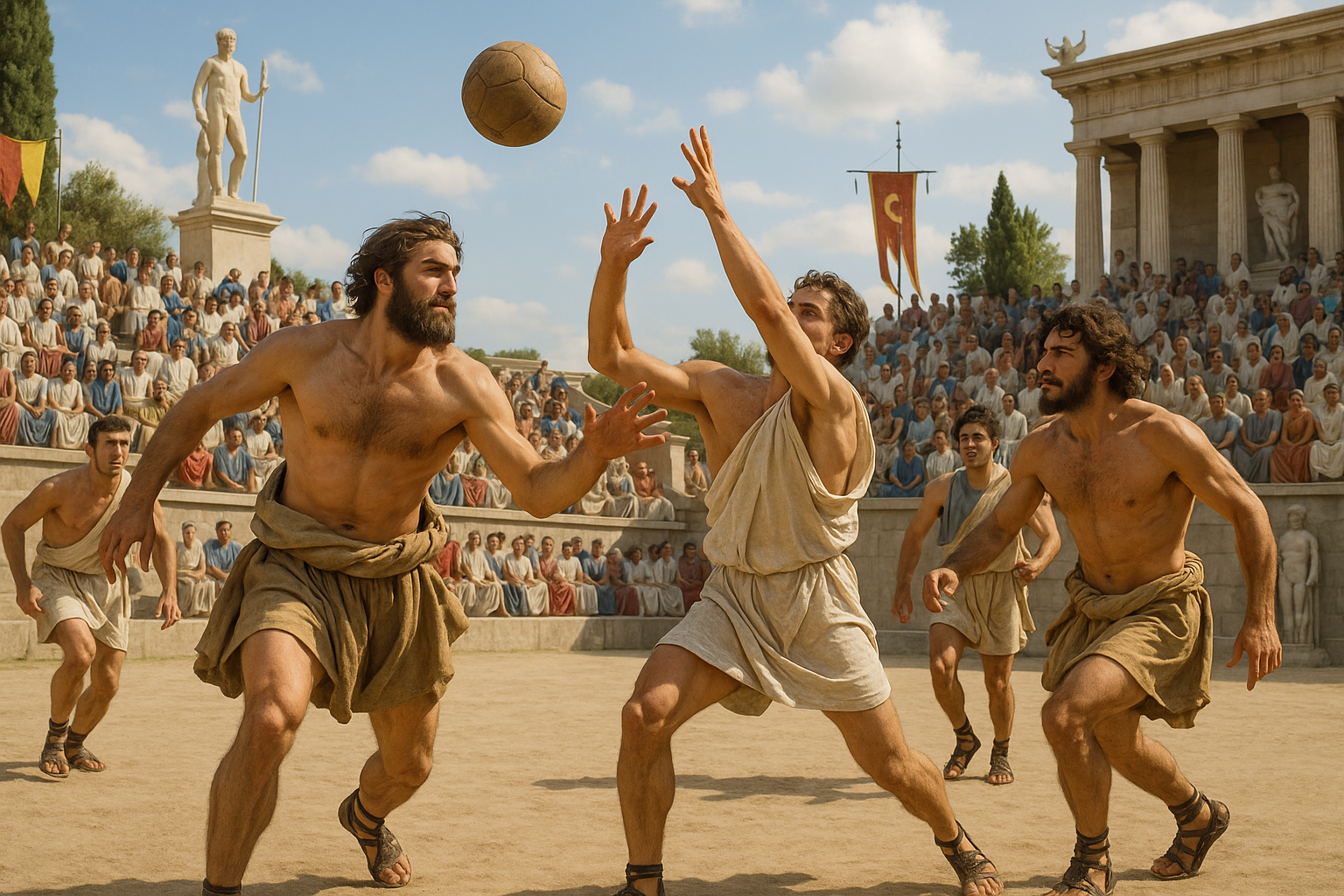
Conclusion: Embracing the Legacy of Ancient Greek Ball Games 🎭
In exploring the ancient Greek tradition of ball games, we have journeyed through a fascinating aspect of Hellenic culture that underscores the importance of physical prowess, social interaction, and competitive spirit. From the expansive fields of Olympia to the bustling city centers of Athens, these games were not merely recreational activities but pivotal elements of Greek society that contributed to community cohesion and personal excellence.
One of the key points we discussed was the multifaceted role of ball games in ancient Greek life. These games were a microcosm of societal values, emphasizing the Greek ideals of arete (excellence) and kalokagathia (the harmony of physical and moral beauty). Through them, participants and spectators alike engaged in a shared experience that celebrated human potential and community spirit.
Furthermore, we highlighted the educational dimension of these games. They served as tools for teaching young Greeks important life skills such as teamwork, strategy, and perseverance. This intrinsic educational value is a testament to the forward-thinking nature of Greek culture, which continues to inspire modern educational practices.
Moreover, the legacy of Greek ball games is evident in today’s sports and recreational activities. The principles and structures established by the Greeks have transcended time, influencing sportsmanship and athletic competitions globally. This enduring impact underscores the timeless appeal and significance of these ancient practices.
As we conclude, it’s essential to recognize the ongoing relevance of studying ancient traditions. By understanding the cultural and historical contexts of past societies, we gain valuable insights into our own social dynamics and values. We encourage you to share this knowledge, apply these insights in your community, and continue exploring the rich tapestry of human history.
Please feel free to comment below with your thoughts, share this article with fellow history enthusiasts, or reflect on how these ancient practices resonate in today’s world. Together, let’s keep the spirit of ancient Greek culture alive! 🌍
For further exploration on this topic, consider visiting:
Perseus Digital Library and
The British Museum.
—
Feel free to expand on these points to reach your desired word count.
Toni Santos is a cultural movement researcher and traditional sport ethnographer specializing in the study of forgotten combat systems, historical ball game rituals, and the physical languages embedded in ancient athletic traditions. Through an interdisciplinary and movement-focused lens, Toni investigates how humanity has encoded discipline, competition, and tradition into physical play — across cultures, fields, and forgotten arenas. His work is grounded in a fascination with sports not only as games, but as carriers of hidden meaning. From ancient martial arts lineages to historical ball games and unusual solo challenges, Toni uncovers the visual and symbolic tools through which cultures preserved their relationship with the athletic unknown. With a background in movement semiotics and sporting heritage history, Toni blends visual analysis with archival research to reveal how games were used to shape identity, transmit memory, and encode community knowledge. As the creative mind behind tapzix.com, Toni curates illustrated sport taxonomies, speculative game studies, and symbolic interpretations that revive the deep cultural ties between athletics, folklore, and forgotten tradition. His work is a tribute to: The lost combat wisdom of Ancient Martial Arts Traditions The guarded rituals of Historical Ball Games and Their Origins The communal presence of Rural Team Sports and Folklore The layered physical language of Unusual Solo Games and Challenges Whether you're a sporting historian, movement researcher, or curious gatherer of forgotten athletic wisdom, Toni invites you to explore the hidden roots of traditional games — one move, one match, one tradition at a time.

